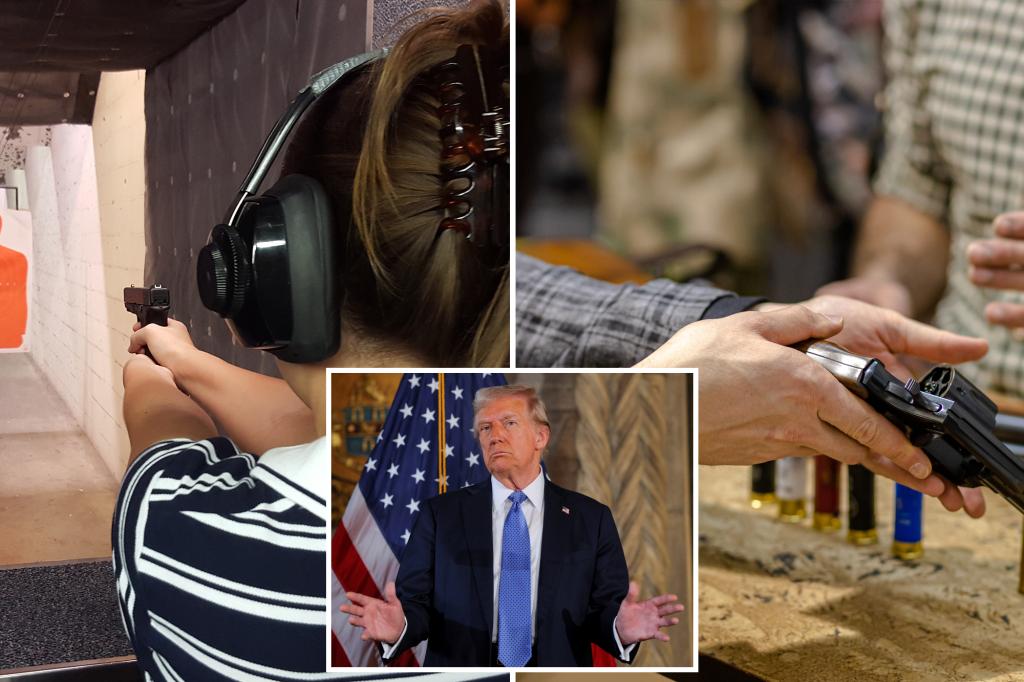The political landscape in the United States has witnessed a fascinating shift in gun ownership trends, particularly among historically marginalized groups. The prospect of a second Trump administration has ignited a wave of fear among LGBTQ+ liberals, many of whom are now turning to firearms for self-protection. This phenomenon is fueled by anxieties over potential discriminatory policies and a perceived threat of persecution, even evoking chilling comparisons to historical atrocities like concentration camps. This fear-driven surge in gun ownership underscores the deep political divisions within the country and the heightened sense of vulnerability experienced by certain communities. The increased visibility and acceptance of gun ownership within liberal circles represent a significant departure from traditional political alignments, where gun rights advocacy has been largely associated with conservative ideologies.
The LGBTQ+ community, in particular, has witnessed a notable increase in gun ownership. Organizations like the Liberal Gun Club, the Socialist Rifle Association, and Pink Pistols have reported a significant uptick in membership and firearms training requests, especially following the 2024 election cycle. These groups offer a safe and inclusive space for LGBTQ+ individuals to learn about gun safety and handling, fostering a sense of empowerment and self-reliance in the face of perceived threats. The rising popularity of these organizations indicates a growing desire within the community to take control of their personal safety and security, reflecting a broader trend of self-defense becoming a priority for marginalized groups who feel increasingly vulnerable. The motivations behind this trend are multifaceted, ranging from concerns about hate crimes and targeted violence to anxieties surrounding potential shifts in political power and the erosion of civil liberties.
This emergent trend is not only fueled by political anxieties but also by a desire for self-preservation in a climate often perceived as hostile. The Pulse nightclub shooting in 2016, a horrific act of violence that targeted the LGBTQ+ community, serves as a stark reminder of the vulnerability of marginalized groups. The trauma of this event and other instances of hate-motivated violence have driven some members of the community to seek firearms training and ownership as a means of self-defense. This shift signifies a growing sense of urgency among some LGBTQ+ individuals to equip themselves with the tools and skills they believe are necessary to protect themselves and their loved ones from potential harm. It highlights a complex interplay of fear, empowerment, and the search for security in a society grappling with deep-seated divisions and anxieties.
The surge in LGBTQ+ gun ownership intersects with a broader cultural shift in the perception and practice of gun ownership in America. Historically, gun ownership has been more prevalent among conservative, predominantly white communities. However, recent years have seen an increase in gun ownership among minority groups, reflecting a growing sense of insecurity and a desire for self-protection. This shift is driven by a confluence of factors, including social unrest, political polarization, and a perceived rise in violent crime. For many in these communities, gun ownership is no longer solely about political ideology but about personal safety and the need to take control of their own security.
The narratives of individuals within the LGBTQ+ community who have chosen to arm themselves offer compelling insights into the motivations behind this growing trend. They speak of a desire to protect themselves from hate crimes and potential violence, driven by a fear of becoming targets of discrimination or persecution. For some, owning a firearm represents a form of empowerment, a way to reclaim control in a world that often feels threatening and unpredictable. This sense of agency is particularly significant for members of marginalized communities who have historically been subjected to systemic discrimination and violence. Gun ownership, for some, becomes a symbol of self-reliance and a tangible means of asserting their right to safety and security.
While the rise in LGBTQ+ gun ownership represents a significant cultural shift, it is not without its complexities. The intersection of gun ownership, identity, and political affiliation raises important questions about the evolving relationship between personal safety, community security, and the role of firearms in a polarized society. As more members of marginalized communities embrace gun ownership, the ongoing national conversation about gun control and gun rights will undoubtedly continue to evolve, reflecting the changing demographics and motivations of gun owners across the political spectrum. The narratives of LGBTQ+ gun owners add another layer to this complex debate, highlighting the nuanced reasons why individuals choose to arm themselves and the need for comprehensive and inclusive approaches to addressing gun violence and ensuring the safety of all citizens.










